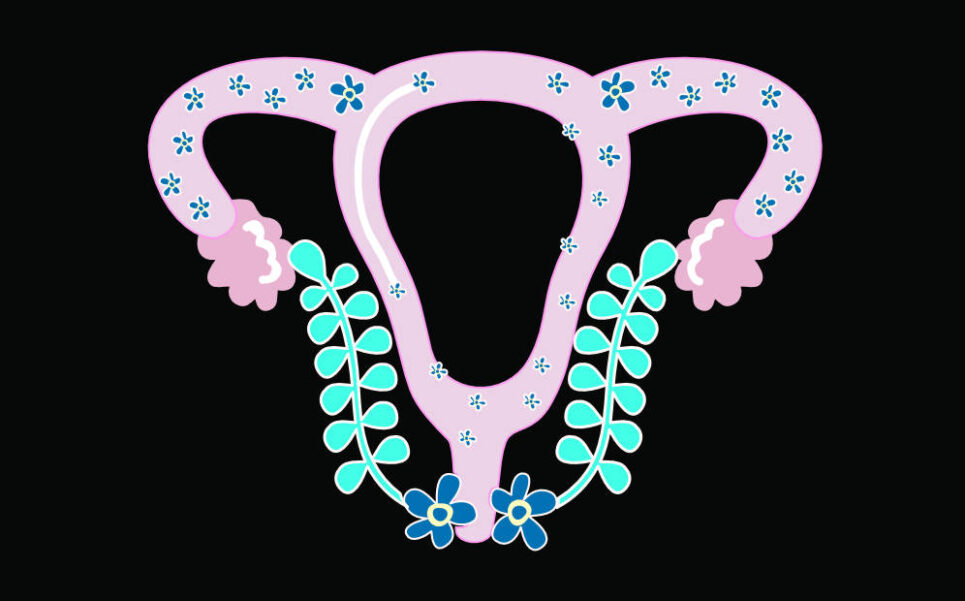The reasons why women have abortions are infinite and certainly very personal. For example, some do it because they were victims of rape or incest. Other women had an abusive partner, maybe the fetus has a very serious physical problem, and others were not ready to become mothers.
Regardless of the reason for it, this is a decision that is only up to women (that is my humble opinion). And, for some absurd reason our society has allowed women to feel not only sexualized, but also insecure about their sexuality, their choices and decisions about their desire to be mothers and moment when they want to.
I would like to clarify that not all women should be mothers. It is perfectly valid to be a mother and it is perfectly valid not to be a mother. That is a personal decision for each woman. And, the fact that a woman is not a mother does not take away or put anything. It is as illogical as saying that because I have vocal cords I must be a singer!
Well, returning to the central theme of this text, women and abortion. So, taking into account that the termination of pregnancy has been seen as a “sin” (at this moment I can’t find a better term), facilitating this option has not been easy for governments. This is why it is vital that there are places where women feel comfortable and safe to make the right decision for them. This is how we have come to Oriéntame.
The Oriéntame Foundation
Oriéntame is a private, social benefit organization created in 1977 by Dr. Jorge Villareal Mejía in Bogotá, Colombia.

For the foundation it has always been vital to be able to guarantee confidentiality, privacy and warmth in the care of unwanted pregnancy, its prevention and the promotion of reproductive health for Colombian women and couples, regardless of their economic capacity or social status.
Over the years the foundation has developed a series of easily accessible services. The thing is that when a woman (or couple) is faced with an unwanted pregnancy or incomplete abortion, she requires immediate and responsible medical and psychosocial care.
The Foundation is aware that abortion is not the only option. For this reason, it has developed alternative programs to unwanted pregnancy and training and education programs as a contribution to the improvement of public health, women’s rights and social justice.
The foundation employs people from all walks of life. Everyone who is part of our team has the same capabilities regardless of age, race, disability, nationality, creed, sex, sexual orientation, gender identity, marital status, genetic information or any other category. We have a great team. There are doctors, gynecologist and lawyers, amongst others.
The company’s reproductive health care model is one of the key points to accompany women when making a decision on reproductive issues with responsible and timely information.
Since 1990, the model of comprehensive care for girls and women in sexual and reproductive health has been successfully transmitted to health professionals in 7 Latin American countries, making Oriéntame a pioneer and leader in the region.
Since 2006 when the Constitutional Court, with its ruling C-355, authorized the Voluntary Interruption of Pregnancy (VTP) in three specific cases, the Foundation has developed protocols with high quality standards for the care of women who require this service, consolidating itself as a reference for other institutions in the implementation of legal VTP services.
Abortion
Voluntary termination of pregnancy (VTP) is the option that legally and safely terminates a pregnancy before 40 weeks of pregnancy.
Along with adoption or acceptance and foster care, abortion is one of the three alternatives available to women, girls and others who are able to carry a child when they are experiencing an unwanted pregnancy.
During the first 24 weeks of pregnancy, abortion is legal and free in Colombia. .
For pregnancies of more than 24 weeks you can have an abortion legally and safely, if you are in at least one of these situations defined since 2006:
** the pregnancy is a consequence of rape, non-consensual insemination or incest.
** there is a fetal malformation incompatible with life outside the womb.
** the pregnancy endangers the woman’s life or any aspect of her health.

It is important to keep in mind that there are two treatment options to practice voluntary termination of pregnancy (according to the Protocol for the Prevention of Unsafe Abortion in Colombia of the Ministry of Health, 2014), medical abortion and outpatient procedure in a medical center.
The treatments are ambulatory and do not require incapacity or special care; the choice should be made by the pregnant woman with sufficient information and medical advice, taking into account the gestational age, the advantages and disadvantages of each method and the health conditions in her particular case.
By law, voluntary termination of pregnancy is covered by the mandatory health plan and women can request it from their health insurance company.
As mentioned above, there are many reasons to terminate a pregnancy. Some of them are a dangerous condition for the fetus, danger to the health of the pregnant woman, being in an aggressive and violent relationship, rape, not being prepared or simply not wanting to be a mother. All valid options!
Frequent doubts
Although much is known about abortion, it is very normal that if a person is in this situation, he/she may have doubts. It would be very rare for them not to.
Let’s start at the beginning.
What should you do when you have unprotected sex? Simple, emergency contraception, there are possibilities to prevent pregnancy before it occurs, find at any of the Oriéntame locations the morning after pill completely free.

There is a menstrual delay. When should a pregnancy test be done? It is important to be clear that the home pregnancy test, which is done by taking a urine sample, preferably the first one in the morning because it is the most concentrated, begins to be effective between the 10th and 15th day after sexual intercourse. From that moment on, its effectiveness is high and its results are reliable.
Similarly, to be effective, the blood test requires the same waiting time (10-15 days) and must be taken in a laboratory by trained personnel.
Regarding the termination of a pregnancy, in Colombia one must pay for the service of voluntary termination of pregnancy. However, the price depends on factors such as: gestation time, type of anesthesia, modality of care, the post-abortion contraceptive method chosen, among other variables.
The price of this service starts at $360,000 pesos and may increase depending on the number of weeks of pregnancy and care provided.
However, abortion in Colombia is covered by the health benefits plan of your EPS. This is very important in cases where there are not enough economic resources to pay for private care.
Legal abortion treatment is a service to which you are entitled and is included in the basic health plan. This means that the payment for treatment must be covered by the Health Promoting Entity -EPS-. The foundation has agreements with some of the most important EPSs in the country.
There is a strict medical safety protocol, so this is a question that we answer in detail in the free 20-minute orientation session that we provide to all our users, and in this video we tell you about it in one minute.
Another issue to keep in mind is that pain during the abortion process is a fear present in 8 out of 10 patients when facing a pregnancy termination treatment. Learn how to manage pain during an abortion procedure.
It is possible to have an abortion at home with medication. Treatment with medication can be performed freely, legally and safely at home under the telemedicine modality up to the tenth (10) week of gestation.

At Oriéntame, the treatment is performed with a combined formula of misoprostol (known in some countries as Cytotec® or Cytil®) with mifepristone (known as Mediprist®).
This combination of drugs increases the effectiveness and speeds up the expulsion process. And it was approved in Colombia in 2017 by the Instituto de Vigilancia de Medicamentos y Alimentos -INVIMA- for the pharmacological treatment of voluntary termination of pregnancy.
Women can go to any of Oriéntame’s locations to have an abortion with mifepristone and misoprostol.
At the foundation it is performed with a combined formula of misoprostol (also known as Cytotec® or Cytil®) and mifepristone (known as Mediprist®) approved in Colombia for the treatment of pregnancy termination, which reinforces its effectiveness and accelerates expulsion.
The treatment with these medications can be performed in face-to-face care up to the eleventh (11th) week of gestation.
The brief abortion procedure is the quickest option for voluntary termination of pregnancy.
Using the uterine aspiration technique (MVA), the contents of the uterus are suctioned out.
This procedure is more than 99.8% effective, is completely outpatient and can be performed during the first 15 weeks of pregnancy.
Although the aspiration procedure takes between 10 and 15 minutes, in total you may be required to be in the medical center for between 3 and 5 hours.
Painless Abortion
There is a painless abortion procedure. In this procedure, the ability to perceive pain is temporarily suppressed by the action of a sedative medication.
Another common effect of sedation is drowsiness, so you may not remember the procedure either.
Sedation pain control can be applied in minimally invasive procedures such as:
Uterine aspiration (MVA): consists of a gentle suction of the contents inside the uterus and takes between 10 and 15 minutes. Uterine aspiration can be performed as early as week 5 and as late as week 15 of gestation.
Dilatation and evacuation (D&E): combines suction and forceps management. One day before the procedure it is necessary to report to the medical center for cervical preparation with medication. D&E is the treatment of choice after the 15th week of pregnancy.
These procedures are more than 99.8% effective and are recommended for their safety by the World Health Organization in its document “Guidelines on abortion care” of 2022.
Alternatives to abortion
Although the Oriéntame Foundation is a link that provides information, support and a means for a woman to have an abortion, they do much more than that.
One of the other ways in which they help is by providing alternatives. One of those alternatives is adoption.
This information is for all women, girls and adolescents who are going through a process of unwanted or unplanned pregnancy. It is necessary that they can explore their options to make an informed, responsible and autonomous decision regarding motherhood, their present and their future.

The foundation has bridges between the Institutions Authorized for Adoption (IAPAS). These institutions are recognized by the Colombian Institute of Family Welfare (ICBF).
In the Authorized Adoption Institutions (IAPAS) the process is voluntary and free of charge. Attention is offered in two modalities:
** External: Sessions are held with the professional team in psychology, social work, nutrition and occupational training. In addition to having the opportunity to meet other people who are also in the process of adoption.
** Internal: in this modality, users are admitted from the fifth month of gestation. In addition to the services of the external modality, the user receives free lodging, food and specialized psychological support once a week to deepen the clarity of the decision.
If the decision is to give the baby up for adoption, at Oriéntame, women can expect the following:
A medical evaluation to verify the state of health and the normal development of the pregnancy. Likewise, emotional assistance, psychosocial counseling and advice on options in the face of unwanted pregnancy. Counseling for the beginning of the process in the adoption institution.
The requirements to give a child for adoption are:
**To be of legal age. Minors may do so with the consent of their guardian or legal guardian.
** Not to have a criminal record.
** Not to consume psychoactive substances.
** Not to have been diagnosed with cognitive disability or mental pathology.
** In the case of having a partner, the partner must follow the same process as the pregnant person and sign the adoption consent.
** In the case of foreigners, they must have support network in the city.
In case of considering the continuation and upbringing, you will be referred to EPS to start prenatal controls, delivery and postpartum care.
Ending
Institutions such as the Oriéntame Foundation help to ensure that women do not have to resort to unsafe procedures to end an unwanted pregnancy, putting their health and lives at risk.
It is necessary to get rid of the stigma surrounding abortion. Let us keep the following concepts in mind: the criminalization of abortion does not deter women from having abortions.

The criminalization of abortion affects and violates the fundamental human rights of girls, adolescents and women. If safe abortions are not allowed, women’s lives are put at risk. The criminalization of abortion increases deaths and loss of health for many women.


